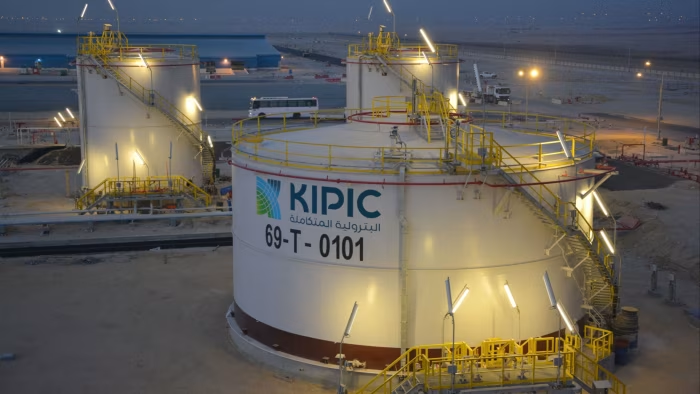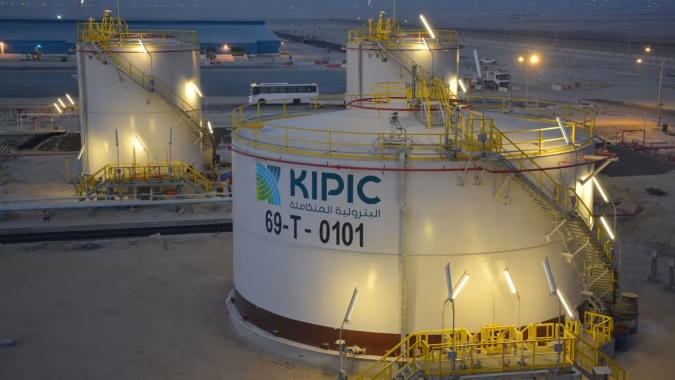Kuwait Embarks on Bold Economic Diversification Amid Oil Dependency
Kuwait, historically reliant on its vast oil reserves, is initiating significant economic reforms to reduce its dependence on hydrocarbons and foster a more diversified and sustainable economy. Recent legislative measures, strategic investments, and international collaborations underscore the nation’s commitment to this transformative journey. While oil remains a cornerstone of Kuwait’s economy, the country is actively pursuing alternative revenue sources to ensure long-term economic stability and resilience in the face of fluctuating global energy markets.
Public Debt Law: A Catalyst for Change
In a landmark move, Kuwait has enacted a new public debt law, allowing the government to borrow for the first time in nearly a decade. This legislation sets a public debt ceiling of KD30 billion (approximately $97 billion) and aims to finance major infrastructure projects, including a new port, an airport terminal, and several key public sector developments. By tapping into international debt markets, Kuwait seeks to diversify its revenue streams and reduce its overreliance on oil income, which currently accounts for a substantial portion of the national budget.

Sheikh Nawaf S. Al-Sabah, CEO of Kuwait Petroleum Corporation, emphasized the necessity of finding alternative revenue sources to ensure a sustainable future. Experts believe this new debt strategy will provide the government with much-needed liquidity to support economic growth and investment in non-oil sectors while ensuring financial stability amid global market volatility.
Vision 2035: Roadmap to Diversification
Central to Kuwait’s diversification efforts is “Vision 2035,” an ambitious plan to transform the nation into a regional economic and financial hub. This long-term strategy aims to create a knowledge-based economy driven by innovation and private sector engagement.
The plan prioritizes development in key sectors such as finance, healthcare, education, tourism, and infrastructure. Notable projects under this vision include the development of Silk City and the Northern Gulf Gateway, which are expected to enhance trade, tourism, and business activities. Additionally, the government is investing heavily in renewable energy projects, particularly solar and wind power, to reduce the nation’s carbon footprint and promote sustainable development.
To support these initiatives, Kuwait is also introducing regulatory reforms aimed at improving the ease of doing business, attracting foreign investors, and reducing bureaucratic hurdles that have historically hindered private sector growth.
International Collaborations and Investments
Kuwait is actively seeking foreign investments and strengthening international partnerships to bolster its economic diversification. The country has been fostering diplomatic and economic ties with key international players to attract investments in various industries beyond oil and gas.
One of the most notable recent developments is Turkey’s announcement of a $5 billion investment in Kuwait. This investment will focus on sectors like clothing, automotive spare parts, iron and steel goods, and defense projects. Such collaborations are expected to enhance bilateral trade, stimulate job creation, and further integrate Kuwait into the global economy.
Furthermore, Kuwait has been engaging with countries in Europe, Asia, and the Middle East to explore joint ventures in technology, infrastructure, and financial services. By diversifying its economic partnerships, Kuwait is positioning itself as a competitive player in the region.
Tax Reforms Aligning with Global Standards
In alignment with global tax reforms and to diversify income sources, Kuwait has introduced a 15% minimum top-up tax on multinational enterprises operating within the country. Effective from January, this measure complies with the OECD’s Two-Pillar Solution, ensuring that large multinational enterprises pay a minimum effective tax rate on profits in each country they operate.
This initiative mirrors similar taxes imposed by neighboring Gulf countries and reflects Kuwait’s commitment to international tax standards. The introduction of such taxation policies is a step toward creating a more balanced and diversified revenue model, reducing the country’s reliance on oil-generated income.
Kuwait is also considering the implementation of a value-added tax (VAT) in line with other Gulf Cooperation Council (GCC) nations. This move, if approved, would further strengthen the nation’s fiscal stability and help fund critical infrastructure and social development programs.
Economic Outlook and Challenges
Kuwait’s economy is projected to expand in 2025, driven by the unwinding of earlier oil production cuts and growth in the non-oil sector. Non-oil GDP is expected to grow slightly faster than in 2024, amid anticipated interest rate cuts, increased consumer spending, and government-backed initiatives to boost private sector participation.
However, despite these positive projections, challenges remain. The country must address structural economic issues, such as low investment rates, a heavily subsidized public sector, and a rigid labor market that is overly dependent on government jobs.
Fiscal deficits are projected to continue through 2025, making it imperative for Kuwait to implement further economic and financial reforms. Policymakers must focus on enhancing productivity, encouraging innovation, and fostering a business-friendly environment to sustain long-term growth.
Another key challenge is political uncertainty, which has occasionally delayed crucial economic decisions. Kuwait’s leadership must ensure that policy continuity and stability remain at the forefront of its economic agenda to attract and retain foreign investment.
Conclusion
Kuwait’s proactive measures to diversify its economy mark a pivotal shift towards sustainable development. Through legislative reforms, strategic investments, and international collaborations, the nation is laying the groundwork for a resilient economic future.
While challenges persist, these initiatives reflect Kuwait’s determination to reduce its oil dependency and embrace a diversified economic landscape. If successfully implemented, Kuwait’s Vision 2035 and related reforms will position the country as a leading economic hub in the Middle East, ensuring prosperity for future generations.
Do follow gulf magazine on Instagram
for more information click here


